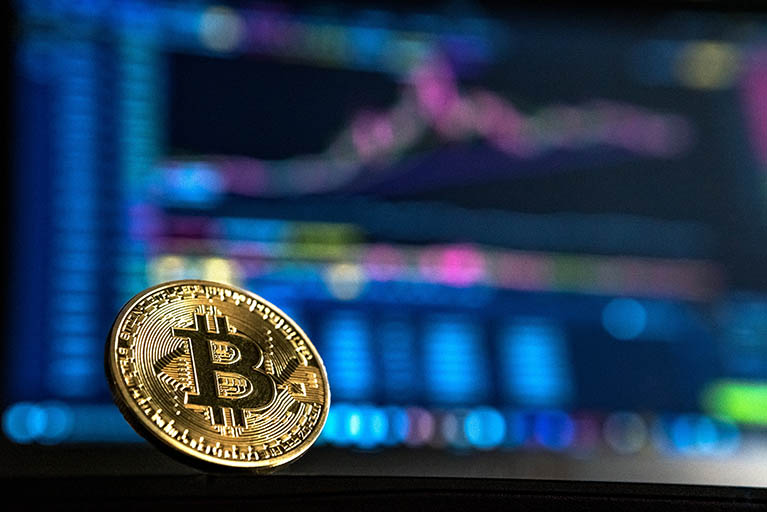South Korea is responsible for 30% of all cryptocurrency trading, despite representing less than 1% of the world’s population. If you see heavy volatility in the market, it’s usually South Korean Trading. So, what exactly makes South Korea the most active cryptocurrency market in the world?

The culture
In the West, especially Europe and America, people are still struggling to understand cryptocurrencies. People who have spent their lives investing in tangible assets like real estate or commodities have trouble fathoming that something intangible, existing purely in the digital world, could possibly be worth thousands of dollars. In South Korean culture, where people have valued digital goods long before Bitcoin came along, the idea that something existing strictly in cyberspace could be valuable was an easy concept to grasp.
Some stats: South Korea is a nation of 51 million people with a GDP 12th in the world. Despite its modest population and economy when compared to countries like the United States and China, South Korea spends the 3rd most of any country on purchases in the Google Play app store. In 2017, South Koreans spent over $3 billion dollars in Google’s app store on digital goods – character avatars, digital gifts and application upgrades. On a game called Lineage, which is a multiplayer RPG similar to World of Warcraft, players spend up to $1,000 for limited edition digital swords and axes. Koreans already had no trouble assigning high values to digital goods and were comfortable with purchasing them, buying cryptocurrencies wasn’t a radical departure from their existing spending habits.
Another element of South Korean and widely Asian culture that attracted its population to cryptocurrencies is its love for gambling. It is common for a Korean family on holiday to gamble together over various card games. Despite gambling’s prevalence in South Korea, it was made illegal by the government a long time ago. Typically, when governments ban something that people enjoy, they find a way to do it anyway. When the cryptocurrency market came along, people observed the wild fluctuations and fortunes being made and viewed it as a virtual casino that the government hadn’t outlawed and could make livable fortunes from.
Demographics
Approximately 50% of South Korea’s 51 million people live in the capital city of Seoul. Seoul has twice the population density of New York City and 4 times that of Los Angeles. South Korea has the fastest internet connection in the world with 93% of its population online and hyper-connected through social media. When you have millions of people living in a densely packed metropolitan city who are in constant communication, word travels fast.
South Koreans didn’t have access to purchasing Bitcoin when it started its ascent in 2012. When Ethereum broke through $1 in early January 2016, South Korea had several exchanges operational and people viewed it as the opportunity to invest in “the next Bitcoin”. When the price of one Ether climbed from $1 to over $40 in the first 4 months of 2016, word of the 4000% returns spread like wildfire. And it continued, the rumour of massive gains to be made investing in the altcoins like Ripple, Stellar Lumen, Cardano continued to dominate South Korean social media throughout 2017.
In the United States, less than 1% of the entire population owns cryptocurrency in any form. According to recent polls, 30% of salaried workers in South Korea own cryptocurrencies, but a real figure is thought to be closer to 50%. This does not include retirees who have also invested significant amounts. In the United States, cryptocurrency adoption is still somewhat confined to a small percentage of the millennial generation. In South Korea, awareness of cryptocurrencies is practically ubiquitous cross generations.
Politics & timing
Having banned gambling quickly and effectively many years ago, there is a good reason for the delay in doing the same with Cryptocurrency, they were preoccupied with a political scandal that concluded with the impeachment of their president. A long, complicated and actually at times, strange story including deception, denial and fraud across the South Korean elite and powerful finally ended with the Korean people losing patience. By October 2015, the Korean people had enough and took to the streets in massive numbers calling for President Park’s impeachment.
The protests raged on from October 2015 until Park was removed from power in March of 2016. During this time, the price of Ethereum went from under $1 to over $10 and the word was spreading fast around Seoul. It’s hard to say what exactly the government would have done had they not been embroiled in scandal, but it is likely they would have imposed some sort of restrictions – either an all-out ban or an imposed limit on the amount of cryptocurrency someone could buy at one time. Unlike Coinbase, America’s biggest exchange where individuals can only purchase cryptocurrency in $10,000 intervals, the Korean exchanges had no such limit. As a result, the average wealthy Korean was purchasing in $100,000-$500,000 intervals. When others got wind of how profitable these investments were, it became common for people to remortgage their homes in order to get in on the action.
Regulations and government intervention
At several key times throughout 2017, the government expressed scepticism and negative sentiment towards cryptocurrencies. When the South Korean Minister of Finance said during a radio interview in early 2018 that a ban on cryptocurrencies was “a live option,” it sent the markets into a panic. In the following days, the market shed over $300 billion dollars in the sharpest correction in recent memory. It created a presidential petition with 200,000 signatures urging the government not to move forward with a ban. The government eventually backtracked, stating that there would be no bans but that regulations would be coming.
On January 23rd, the government announced that regulations would go into place effective January 30th. The government stated that it will put an end to “anonymous trading,” meaning that only trading from accounts associated with legal South Korean citizens will be permitted. This will allow the government to tax gains while preventing minors and non-Koreans from trading cryptocurrencies on Korean exchanges.
Future cryptocurrency ban unlikely
Whether the government likes it or not, Korea is already heavily invested in cryptocurrencies and there’s nothing anyone can do to change that. It’s also impossible to ignore the fact that Koreans have prospered more from the cryptocurrency boom than any other nation in the world. At the same time, given their level of exposure, they would be disproportionately affected by a major market downturn. Basically, the only thing the government can do is support the growth of the cryptocurrency market because a healthy market is good for South Koreans.
If America or China banned trading, only a small percentage of their populations would be affected. A Korean ban would create widespread panic and could cause systemic damage to the Korean economy. Not to mention that South Korea is a democracy, so any politician that takes an anti-cryptocurrency stance is likely to haemorrhage votes and be out of power.
Upcoming cryptocurrency trends and the future
Most investors and commentators are optimistic about the future of blockchain and cryptocurrencies because they see them as a means of bringing about a more equitable society. Currently, corporations are required to maximize the profits of their shareholders, often at the expense of their customers. By the time corporations issue shares to the public they are already established, mature companies so most of the value has been created. In a distributed and tokenized economy, the average person can participate in value creation from the onset by participating in an ICO (Initial Coin Offerings are a way of funding early-stage blockchain projects that are open to the public). In a decentralized economy, end users will have more ownership over the services and products they use and thus, share in the value they create.
One of the major cryptocurrency trends coming is major corporations decentralizing themselves by moving to the blockchain and “tokenizing” their products and services with their own cryptocurrencies e.g. facebook coin for example. Corporations are starting to see the writing on the wall and are moving towards decentralization in order to avoid being replaced by a blockchain based competitor.
South Korea – A tech pioneer
South Korea has a unique set of characteristics and attributes that created the perfect environment for the embracement of cryptocurrencies as a vehicle for speculative investment. These same attributes make it highly likely that South Korea will be the first region to see widespread adoption of cryptocurrencies and blockchain as a technology.
South Korea has embraced a certain social revolutionary technology well before the rest of the world: social media. The world’s first major social network was South Korea’s Cyworld, introduced in 1999, well before MySpace or Facebook.
To summarise
In summary, South Korea is a tech-savvy nation that highly values digital goods and also has a penchant for gambling without a viable outlet. Therefore, will almost certainly continue to be naturally drawn to cryptocurrencies. The densely packed and hyper-connected composition of Seoul allows for word of the massive gains being made from cryptocurrency investments to spread rapidly throughout the population. The rise of cryptocurrency’s popularity coincided with political turmoil that distracted the government from a situation that under normal circumstances, it would have tried to control. This all led to what can only be described as hysteria which subsequently led to the “pump” of 2017.
